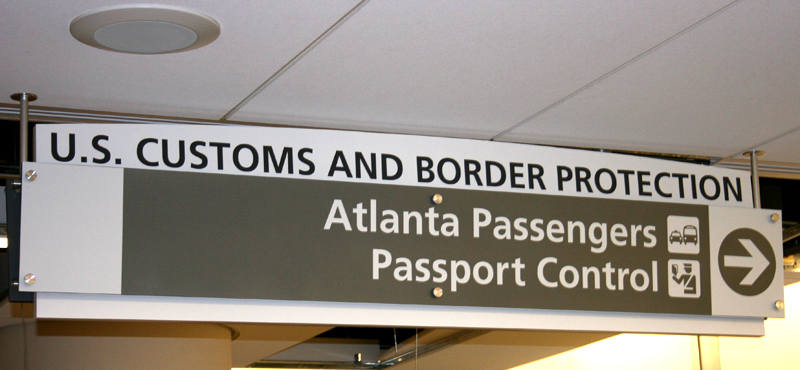Nationals, citizens, and visitors from the following countries may be subject to pay up to $15,000 in visa bonds as part of a new pilot program from the Department of State of the United States that will become effective for twelve months as of Wednesday, August 20, 2025…
Visitors From These Countries Subject to Pay Up to $15,000 in Visa Bonds
…and the countries are as follows:
- Malawi
- Zambia
Nationals have been identified by the Department of State of the aforementioned two countries as subject to visa bonds — as outlined in INA Section 221(g)(3) and the recently published Temporary Final Rule — based on their B-1/B-2 overstay rate as per the Overstay Report for fiscal year 2023 by the Department of Homeland Security of the United States.
An overstay is defined as a nonimmigrant who was lawfully admitted to the United States for an authorized period but stayed in the United States beyond his or her authorized admission period.
Generally, a citizen of a foreign country who wishes to travel to the United States must first obtain a visa — either a nonimmigrant visa for a temporary stay; or an immigrant visa for permanent residence. Visitor visas are nonimmigrant visas for persons who want to enter the United States temporarily for:
- Business — B-1 visa
- Tourism — B-2 visa
- A combination of both purposes — B-1/B-2 visa
Any citizen or national who is traveling on a passport issued by Malawi or Zambia who is found otherwise eligible for a B1/B2 visa must post a bond in amounts of $5,000.00, $10,000.00, or $15,000.00 as determined at time of the visa interview. The applicant must also submit a Department of Homeland Security Form I-352 agreeing to the terms of the bond, through the online payment platform of the Department of the Treasury of the United States. This requirement applies regardless of place of application.
Applicants should only submit a Form I-352 to post a bond after being directed to do so by a consular officer. Applicants will be provided a direct link and must pay via Pay.gov – applicants must not use any third-party website for posting the bond as the federal government of the United States is not responsible for any money paid outside of official government systems of the United States.
A bond does not guarantee visa issuance. If any individual pays fees without being directed to do so by a consular officer, that money will not be returned.
Required Ports of Entry Into the United States
As a condition of the bond, all visa holders who have posted a visa bond must arrive to and depart from the United States via one of the ports of entry listed below. Failure to do so may result in being denied entry or a departure not being appropriately registered:
- Boston Logan International Airport — BOS
- John F. Kennedy International Airport — JFK
- Washington Dulles International Airport — IAD
Visa Bond Compliance
The full visa bond amount will be returned to the applicant if the applicant complies with all the terms of the nonimmigrant visa status and with the terms of the visa bond, which are set out on the bond form — the aforementioned Form I-352 Immigration Bonds — and in the Federal Register. The bond will be canceled and the bond money will be automatically returned in the following circumstances in which the visa holder:
- Departs from the United States on or before the date to which he or she is authorized to remain in the United States; or
- Does not travel to the United States before the expiration of the visa; or
- Applies for and is denied admission at the port of entry in the United States
Visa Bond Breach
The Department of Homeland Security is responsible for determining that a visa holder has breached the terms of the visa bond. The Department of State will forward cases in which the visa holder appears to not have complied with the terms of the visa bond to the U.S. Citizenship and Immigration Services for a breach determination — including but not limited to the following circumstances in which the visa holder:
- Departs from the United States after the date to which he or she is authorized to remain in the United States,
- Remains in the United States after the date to which he or she is authorized to remain, and does not depart,
- Applies to adjust out of nonimmigrant status, including claiming asylum
Final Boarding Call
I cannot help but believe that other countries will retaliate if the visa bond program of the United States is expanded — which means that citizens of the United States will be subject to similar policies, procedures, and regulations to enter the countries that are affected by the visa bond program. Retaliation in the form of reciprocity fees already exists between the United States and other countries whose citizens are required to pay as much as $160.00 just to enter the United States — such as Brazil.
Then again, I also do not like the idea of any foreigner who overstays beyond his or her authorized admission period, as they are the people who should be punished — the visa bond helps to pay towards the costs of the overstay of that person — not a blanket policy towards everyone else who just happens to be from the same countries and follows the rules of the laws of the United States.
While I understand the reasons why they are in place, I believe that reciprocity fees and visa fees should be reduced — or even eliminated — for the reasons I state in this article.
Photograph ©2011 by Brian Cohen.

